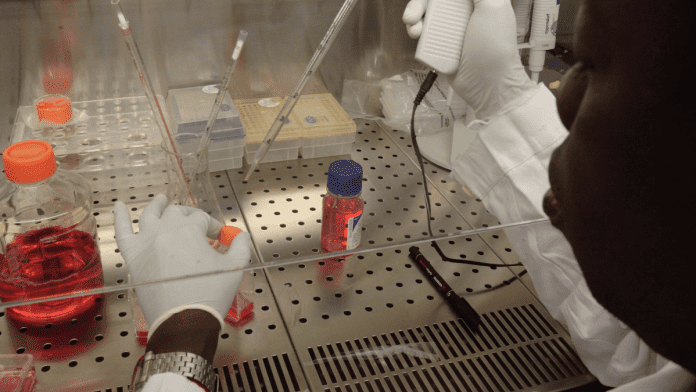News in Brief:
– Nuclear techniques are crucial for global food standards as FAO highlights role in food safety and agricultural transformation.
– The agency’s symposium puts nuclear techniques on stage for enhancing food safety and sustainability.
The integration of nuclear techniques into agriculture has sparked discussions among scientists and farmers alike.
At the International Symposium on Food Safety and Control, the Director-General of the Food and Agriculture Organization (FAO), QU Dongyu, highlighted the critical role these processes play in establishing science-based global food standards.
Understanding nuclear techniques and technologies in agriculture
Nuclear techniques involve using properties of radioactive substances and technologies used to work on them to improve food safety and agricultural productivity. The technologies, for example, offer precise measuring, managing, and controlling capabilities that can be applied to aspects of food safety from soil to post-harvest practices.
It is an important advancement for several reasons. One is in ensuring food safety; contaminated food can lead to illnesses and economic losses but with nuclear techniques, contaminants can be more efficiently detected to ensure that food meets safety standards. Also, with global challenges like climate change, conflicts, and natural disasters, food availability and affordability are at risk. Nuclear technologies contribute to stabilising food supplies by enhancing agricultural productivity and sustainability.
Are there challenges in applying nuclear tech to agriculture?
The FAO and International Atomic Energy Agency (IAEA) champion nuclear technologies for their ability to enhance food safety, improve crop yields, and manage pests. These techniques include radiation to breed hardier crops and isotopic tracers to track nutrient uptake.
However, these advancements come with significant costs and risks, particularly for smallholder farmers.
- Financial strain and accessibility: Implementing nuclear technology requires substantial investment in equipment, training, and infrastructure. For many small-scale farmers, especially in developing countries, these costs are prohibitive. Even when subsidies or international aid reduce these expenses, the long-term maintenance and technical expertise needed creates ongoing financial burdens.
- Health and environmental concerns: While nuclear techniques can improve agricultural productivity, they also pose health risks. Improper handling of radioactive materials can lead to contamination of soil and water, endangering both farm workers and local communities. Moreover, the long-term environmental impacts of using such technologies are not fully understood, raising concerns about sustainability.
- Dependence on external expertise: The complexity of nuclear technologies means farmers often rely on external experts for implementation and maintenance. This dependence can lead to delays and disruptions if technical support is not readily available. Additionally, it undermines farmers’ autonomy, making them reliant on international agencies and experts.
Local farmers need more accessible and safer alternatives, despite the good intentions of the FAO/IAEA collaboration. Traditional agricultural practices, such as organic farming, crop rotation, and integrated pest management, offer sustainable ways to improve yields and food safety without the associated risks of nuclear technology. Investing in local agricultural research and extension services can empower farmers to adopt these methods effectively.
In addition, while the potential of nuclear technology in agriculture is undeniable, it is crucial to balance innovation with safety and practicality. Policymakers and international organisations must prioritise the needs and realities of farmers on the ground, ensuring that technological advancements do not come at the expense of their health, financial stability, or independence.



